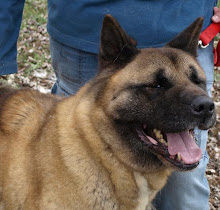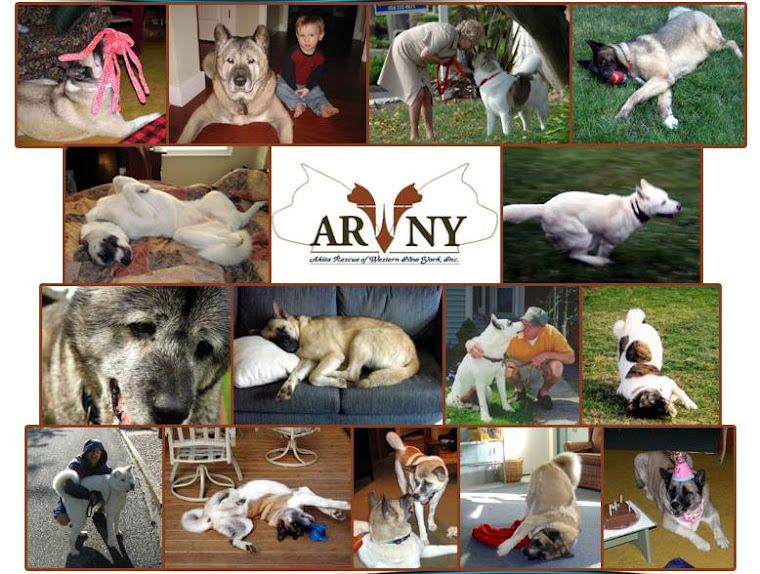I found this great list on the internet, so rather than re-write it, I'm just going to post it here -- its FABULOUS ADVICE for the upcoming holidays to keep your pet safe -- read it in its entirety, its well worth the read:
* Many holiday plants can lead to health problems in dogs and cats. Among the plants to keep out of reach are holly, mistletoe, poinsettias and lilies.
* Snow globes often contain antifreeze, which is poisonous to pets.
* Pine needles, when ingested, can puncture holes in a pet’s intestine. So keep pet areas clear of pine needles.
* The extra cords and plugs of holiday lights and other fixtures can look like chew toys to pets. Tape down or cover cords to help avoid shocks, burns or other serious injuries. Unplug lights when you are not home.
* Anchor Christmas trees to the ceiling with a string to keep it from falling on pets.
* Do not let pets drink the holiday tree water. Some may contain fertilizers, and stagnant tree water can harbor bacteria. Check labels for tree water preservatives and artificial snow, and buy only those that are nontoxic. Some folks use screens around trees to block access to electrical cords and gifts.Very important: do not put aspirin in the water (some folks do this thinking it will keep the tree or plant more vigorous). If a pet ingests the aspirin-laced water, his health or even life can be at risk.
* Pets, particularly cats, can be tempted to eat tinsel, which can block the intestines. Hang tinsel high and securely to keep it out of reach of pets.
* Keep other ornaments out of reach of pets. Ingestion of any ornament, which might look like toys to pets, can result in life-threatening emergencies. Even ornaments made from dried food can lead to ailments. And remember, shards from broken glass ornaments can injure paws, mouths and other parts of the body.
* Put away toys after children open their gifts. Small plastic pieces and rubber balls are common causes of choking and intestinal blockage in dogs. Ingested plastic or cloth toys must often be removed surgically.
* Avoid toxic decorations. Bubbling lights contain fluid that can be inhaled or ingested, snow sprays and snow flock can cause reactions when inhaled, styrofoam poses a choking hazard, tinsel can cause choking and intestinal obstruction, and water in snow scenes may contain toxic organisms such as Salmonella.
* Keep candles on high shelves. Use fireplace screens to avoid burns.
* Hi-tech shooing: A timely product I’m not sure I’d recommend, but if you have any experience with it, let me know. The StayAway canister from Contech Electronics uses a motion-detection device to sense when a pet approaches some off-limits area (countertop, table-top, candles, fireplace mantel, holiday tree), then activates a burst of compressed air and a one-second warning screech.
Other low-tech methods: place sticky mats, crunchy aluminum foil or bubblewrap on or around the area … tie balloons around the area … put some pennies in empty plastic drink bottles and balance the bottles on the bottom branches of the holiday tree or plant so that they’ll noisily tip over if a cat or other pet jumps at or on the tree.
* Holiday guests and other activity can be very stressful and even frightening to pets. It can also trigger illness and intestinal upset. Make sure pets have a safe place to retreat in your house. And make sure they are wearing current I.D. in case they escape out a door when guests come and go.
* Reduce stress by keeping feeding and exercise on a regular schedule.
* Always make time to care for your pets. Some folks get lax about walking their dogs, and a few resort to letting pets out on their own. This puts the animal in danger, while also leading to nuisance complaints and dog bite incidents. Remind pet owners not to take a holiday from responsibly caring for their pets.
* When pets are stressed by holiday activity or during travel, they may require more water. Dogs typically pant more when they feel stressed. Keep fresh water available for them to drink.
* Rescue Remedy, a Bach flower essence available in most health food stores, is a natural stress reliever that many folks keep on hand at home and in travel kits. It can often help both people and animals recover from injury, fright, illness, travel fatigue, chocolate ingestion and irritation. Put a few drops in the dog’s water bowl or portable water container. For stressed or injured animals, rub a drop on their ear or put a drop on the towel in their crate or carrier. Flower essences are free of harmful effects and can be used along with conventional medicines.Another safe, nontoxic Rescue Remedy-like product is Animal Emergency Trauma Solution, available from www.greenhopeessences.com, where you can also get Flee Free to combat fleas nontoxically.Other flower essence sources include anaflora.com and perelandra-ltd.com.
* Do not let guests feed your pets human food. There are many holiday foods, including fatty meats, gravies, poultry skin, bones, chocolate and alcohol, that can cause illnesses from vomiting and diarrhea to highly serious pancreatitis and other toxic reactions. In addition, candy wrappers, aluminum foil pieces and ribbons can choke pets.
* Keep pets away from gift packages as well as your gift wrapping area. Ingested string, plastic, cloth and even wrapping paper can lead to intestinal blockage and require surgical removal. And pets have been severely injured by scissors and other items left on floors and tables.
* Keep pets away from the garbage. Use pet-proof containers.
* If you suspect that your pet has eaten something toxic, call your veterinarian and/or the ASPCA Animal Poison Control Center’s 24-hour emergency hotline at 1-888-4-ANI-HELP.
* If your pet ingests glass, broken plastic, staples orother small, sharp objects, call your veterinarian.In the meantime, you can give your dog supplemental fiber in the form of whole wheat or other high-fiber bread, canned pumpkin or Metamucil, any of which can help bulk up the stools the help the foreigh material pass through the dog’s digestive system. Dosages depend on the size of the dog. For Metamusil, try a teaspoon for a small dog, a tablespoon for a big dog. For pumpkin, feed one-quarter to two-thirds of a cup. Some folks recommend feeding the dog cotton balls to help pass the foreign objects, but others in the veterinary field caution against this since cotton balls can compound the problem.
* By the way, now is a good time to double-check smoke detectors, carbon monoxide detectors and other safety devices and replace batteries. Safety, of course, is the key reason — but here’s another good reason. When batteries run low, the devices often emit alert or alarm sounds at frequencies that can be painful and frightening to many pets. If you’re not home when the alert/alarm sounds, your animals will have to endure that sound until you return, which can be traumatic. So always keep fresh batteries in those devices.
■Holiday sweets with chocolate are not for pets. Depending on the dose ingested, chocolate (bakers, semi sweet, milk and dark) can be poisonous to many animals. In general, the less sweet the chocolate, the more toxic it could be. In fact, unsweetened baking chocolate contains almost seven times more theobromine as milk chocolate. Vomiting, diarrhea, seizures, hyperactivity and increased thirst, urination and heart rate can be seen with the ingestion of as little as 1/4 ounce of baking chocolate by a 10-pound dog.
■Keep your pet on its normal diet. Any change of diet, even for one meal, may give your dog or cat severe indigestion and diarrhea. This is particularly true for older animals that have more delicate digestive systems and nutritional requirements. Boiled or grilled meats and fresh vegetables can be offered as a healthy alternative.
■Don’t give pets holiday leftovers and keep pets out of the garbage. Poultry bones can splinter and cause blockages. Greasy, spicy and fatty for spoiled foods can cause stomach upset and moldy foods could cause tremors or seizures.
■Alcohol and pets do NOT mix. Place unattended alcoholic drinks where pets cannot reach them. If ingested, the animal could become very sick and weak and may go into a coma.
■Keep aluminum foil and cellophane candy wrappers away from pets. They can cause vomiting and intestinal blockage.
■Be careful with holiday floral arrangements. Lilies are commonly used and many varieties including Tiger, Asian, Japanese Show, Stargazer and Casa Blanca can cause kidney failure in cats. Safe alternatives can include artificial flowers made from silk or plastic.
■Common Yuletide plants such as mistletoe and holly berries can be toxic to pets. Should a cat or dog eat mistletoe, they could suffer gastrointestinal upset and cardiovascular problems. Holly can cause vomiting, nausea, diarrhea and lethargy if ingested.
■Poinsettias are over rated in toxicity. They are considered to be very low in toxicity, however, they could cause mild vomiting or nausea if ingested by your pet.
■Christmas tree water may contain dangerous fertilizers, which if ingested, can cause stomach upset. Stagnant tree water can also act as a breeding ground for bacteria and if ingested a pet could end up with nausea and diarrhea.
■Decorate your tree with animal safe ornaments such as dried non-toxic flowers, wood, fabric or pinecones. If ingested, ribbons or tinsel can become lodged in the intestines and cause intestinal obstruction. This is a very common problem with kittens.
HOLIDAY FOODS & BEVERAGES THAT ARE TOXIC TO PETS
■Alcoholic Beverages: Alcoholic beverages can cause alcohol poisoning. If ingested, the animal could become very drunk and weak, may become severely depressed or may go into a coma.
■Yeast Dough: Uncooked yeast dough, if ingested (most cases are with dogs) can rise in the stomach and cause severe pain. Pets who have eaten bread dough may experience abdominal pain, bloat, vomiting, disorientation and depression. Since the breakdown product of rising dough is alcohol, it can cause an alcohol poisoning. Many cases like this require surgical removal of the dough. Even small amounts can be dangerous.
■Chocolate (bakers, semi sweet, milk and dark): If ingested, chocolate can cause vomiting, diarrhea, seizures, hyperactivity and increased thirst, urination and heart rate. This can be seen with the ingestion of as little as 1/4 ounce of baking chocolate by a 10-pound dog. Chocolate poisoning does not seem to be a problem in cats, although it is possible if enough would be ingested.
■Nicotine: Tobacco products can be fatal to dogs and cats if ingested. Signs of nicotine poisonings often develop within 15 45 minutes. Symptoms include excitation, salivation, panting, vomiting and diarrhea. Muscle weakness, twitching, depression, coma, increased heart rate and cardiac arrest can follow.
■Coffee (ground, beans, chocolate covered espresso beans): Contain caffeine which is a stimulant and depending on the dose ingested, stimulation, restlessness, increased heart rate, tremors, or seizures could be seen.
■Macadamia Nuts: Macadamia nuts can cause muscular weakness, depression, vomiting, disorientation, tremors, abdominal pain and muscle stiffness in dogs. The effects can last 1-3 days. This has not been reported in any other species.
■Grapes and Raisins: The ASPCA Animal Poison Control Center is aware of recent reports of dogs alleged to have developed kidney failure following ingestion of large amounts of grapes or raisins. There has also been one case of renal failure occurring in a cat who ate raisins. Veterinary toxicologists at the APCC are currently investigating these cases in an attempt to determine the causative agents or disease processes. At this time the exact role of grapes or raisins in these cases is unclear.
ALWAYS Be Prepared !!!!Your cat may become poisoned in spite of your best efforts to prevent it. You should keep telephone numbers for your veterinarian, a local emergency veterinary service, and the ASPCA Animal Poison Control Center (1-888-426-4435) in a convenient location. If you suspect that your cat has ingested something poisonous, seek medical attention immediately.
Friday, November 20, 2009
Subscribe to:
Post Comments (Atom)




Thanks for sharing the information! Great tips to secure the pets from toxic holiday plants. Travel to unknown place could be made safe with the assistance of a valuable website that offers up-to-date safety travel tips .
ReplyDelete